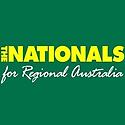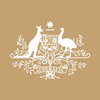
Interview – RN Breakfast with Patricia Karvelas
PATRICIA KARVELAS, HOST: Superannuation is designed to give you a dignified retirement, but many of you are losing billions in lost super payments. Well, not billions individually, but billions across the board.
Women are particularly vulnerable. Data from the Tax Office says Australian workers lost around $3.4 billion over 2019 to 2020. Today, the Government is introducing legislation to stop workers slipping through the super cracks and help them get some of those payments back.
Workplace Relations Minister Tony Burke joined me a short time ago.
THE HON TONY BURKE MP, MINISTER FOR EMPLOYMENT AND WORKPLACE RELATIONS, MINISTER FOR THE ARTS: Good morning.
KARVELAS: $3.4 billion is a huge amount of money that workers are missing out on. How has it happened and how can you change it so people can reclaim their super?
BURKE: One of the challenges at the moment is that the only way you can reclaim your super is through the Australian Taxation Office, and for a lot of people that works. But one of the things when people are making an underpayment claim, normally you do it through the Fair Work Commission. So, at the moment, you have you to settle your underpayment claim through the Fair Work Commission, get that sorted and then go after the super, second. So, the legislation that I’ll be introducing this morning will, if you want to go through the Tax Office, you still can, but will finally allow workers to just do it all in one hit and if you have been underpaid, claim the underpaid wages and the superannuation all at the same time through the Fair Work Commission.
KARVELAS: Industry super funds say about one million women would be thousands of dollars better off if the Federal Government actually mandated pay day superannuation contributions. That’s what they’re putting forward, saying the move could reduce unpaid super by at least 15 per cent. Is that an idea you want to pursue?
BURKE: It’s an idea that I think we’ll need to keep looking at. Obviously, it’s not in the legislation today. There’s a lot of different elements that we need to work through to be able to deal with the effective gender pay gap that doesn’t just occur during working years but then carries all through all the way to retirement.
KARVELAS: Now, Minister, this week’s submissions are due to the Fair Work Commission before they determine the minimum wage. What’s the Government going to put in your submission?
BURKE: Our submission goes in on Friday and I’ll be making more public comments once the submission’s in on Friday. If I put it in these terms: when our submission’s in on Friday, people will see that our values haven’t changed. I think that’s probably the best way I can put it in advance of announcements that we’ll make on Friday.
KARVELAS: Okay. You know that Radio National breakfast likes to hear first where you might go. You say “values haven’t changed”.
BURKE: I think you just did.
KARVELAS: I think I did, but you know I’m going to tease it out a little more. The unions say they want to see wages increase to at least match inflation. You support that concept?
BURKE: The thing that we have to work our way through is there are some members of the workforce who have the least room to move with what’s been happening with inflation and certainly the full award system goes all the way up to some people who are on significantly higher wages. The principles that we dealt with last year were to say – no Government ever wants anyone to go backwards, but last year we put forward the principle that the focus needed to be on the people on the lowest incomes because they had the least savings, they had the least room to move.
KARVELAS: And is it exactly the same concept, because inflation obviously is higher? Last year it was five per cent and we won’t forget the one word that the Prime Minister, then Opposition Leader, backed which was “absolutely” that it should keep up with inflation. Will you use the same word? Will you absolutely back the idea that it should keep up with inflation which is now around seven per cent?
BURKE: You never photocopy a submission one year to the next. They’re never identical in every way. But as I’ve said, our values haven’t changed and what you’ve referred to there is a pretty strong value statement from the Prime Minister.
KARVELAS: This morning, a report by the National Centre for Social and Economic Modelling in The Guardian says there are more than one million people in New South Wales living below the poverty line, with15 per cent of children under 15 living in poverty. I suppose the other adjacent issue is people who don’t have a job. Are you sympathetic to the idea that people on JobSeeker should see an increase to that welfare payment?
BURKE: There was a committee that was established last year as part of the agreements with Senator Pocock getting the Secure Jobs, Better Pay legislation through. They’ll be providing a report which will be part of the Budget deliberations. I certainly haven’t seen a line of sight to that yet. The principles that you referred to are one of the things they’ll be working through.
It’s going to be the case that we’re not going to be able to do in the Budget, you know, everything that we might want – that a Labor Government might want to do straightaway. That’s the reality that we have to face, and in my role as Minister for Employment, I’ve been doing what I can to try to find as many opportunities as possible for people who are on JobSeeker to find their way into the employment market. I’ve had limited levers on that because the contracts were all signed a couple of weeks before the election was called, so I’ve had limited levers. But we still have people wanting to be able to work who we haven’t been able to find their way into the jobs market yet and so that has been a significant focus for me.
KARVELAS: To another bill, negotiations over the housing bill have essentially fallen down in the final sitting week before the Budget. Have you written this one off? Is housing just not going to pass this week?
BURKE: Certainly, we’re – you never stop talking to the crossbench. We’re making big progress on the other bills. As you know, the National Reconstruction Fund went through yesterday and that’ll create a whole lot of manufacturing jobs. Through to about 4:15 last night the Senate was debating the safeguards mechanism, and we’re expecting that that will have gone – the Senate will have finished dealing with that before Question Time on Thursday. So, there’s significant progress.
On housing, we’re still talking to the elected members – you know, and people will continue to talk to us and elected members will take whatever views they take. I have to say, I still struggle with the argument that anybody who does recognise the need for more social and affordable housing would vote against a bill that delivers more social and affordable housing. They can explain their reasons for themselves. But …
KARVELAS: They say it’s not enough, that the crisis is so acute that you need to go higher.
BURKE: Yes, as I say, this measure is not the only one of our housing measures and there’s an agreement with the states that’s still coming up for renewal. There’s a series of different measures that we have. This is something that will help. I get when a bill comes forward that sometimes people will seek to amend it, that you’ll have the debate back and forth as to where it should land. When the situation is so acute, I for my – I just don’t see how you can genuinely recognise the desperate need that we have for more social and affordable housing and vote against something that’s providing that.
KARVELAS: Do you have confidence you can pass the legislation this year?
BURKE: Oh, I’m not in those conversations. We’re in the hands – we know it’ll make a difference. We know it will help. We’re in this situation, dealing with the crossbench the way we are because on all three pieces of legislation that I went through, the Opposition have taken a view that they’ll just vote no and they’re not at the table in the negotiation in any way, shape or form.
Now, that’s a strategic decision, I guess, that Peter Dutton’s taken, that he just wants to vote no to everything, rather than a policy decision, because they haven’t raised a policy problem with providing more housing, and groups that they would normally like to align themselves with, like the Master Builders Association, are really strongly in support of that bill going through. So that’s why we’re in that situation.
But we continue to talk and continue to talk in good faith with the crossbench and we’d be very happy to talk to the Opposition if they wanted to join conversations in good faith.
I would say, though, I remember last year a whole lot of people when I was pushing – and you were interviewing me about it – on the Secure Jobs, Better Pay Bill, different people and some print journalists had predicted I had no chance of getting that through by the end of the year and we ended up finding our way there. So, we’ll continue. We’ll continue with the conversations in good faith and certainly Julie Collins has been having those conversations, working really constructively –
KARVELAS: Is the PM involved as well?
BURKE: – we haven’t got to a majority yet.
KARVELAS: Is the Prime Minister actively negotiating on this one?
BURKE: He can answer that for himself.
KARVELAS: I haven’t got him on, I’ve got you on.
BURKE: Well, certainly, Julie Collins is the person taking the lead on this. But for all issues that are important, you know the Prime Minister engages with the crossbench routinely in a way that previous Prime Ministers haven’t always.
KARVELAS: I have to move to your other portfolio, Arts. There are buckets and towels being used to mop up water leaks in the National Gallery of Australia. There are priceless works of art and culture in that building. Is it acceptable that the Gallery is leaking and are you prepared to spend $256 million over the next decade to waterproof it?
BURKE: The situation of the Gallery and most of the collecting institutions actually is horrific and so there’s a decision that has to be made in the Budget and it goes actually to two different problems that the institutions are facing. So, when I say the “institutions”, I’m referring to the Gallery, the National Museum, the Portrait Gallery, Museum of Australian Democracy. They’ve all been underfunded in two ways. There hasn’t been enough money for the capital works, which is what you’ve just described which means some of the buildings are just breaking down in different ways, and the second thing is they haven’t had enough funding for their staff. So, you have a situation now where a whole lot of the staff are being privately funded; whereas, you would expect philanthropy is there to grow an institution, no to try to keep it on palliative care in some way.
So big decisions have to be taken. We’re getting close to being able to announce that. But effectively for all of those institutions, they’re facing a funding cliff and it’s not the only part of the Budget where this is happening and it’s a real challenge for Jim Chalmers and Katy Gallagher.
KARVELAS: Minister, thank you for joining us this morning.
BURKE: Great to talk. See you.

